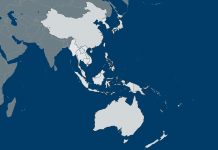By Kamran Bokhari
Turkey is in the midst of a major shift in its policy on Syria. Ankara has long opposed the Syrian Kurds because it sees them as affiliates of the Turkish Kurdish separatist movement, the Kurdistan Workers’ Party (PKK). But now it has reached a compromise with Washington, in which it is willing to accept a role for the Democratic Party of Syria (PYD) and its armed wing, the People’s Protection Units (YPG), in the fight against the Islamic State. The Turks will continue to view the Syrian Kurds as enemies. For now though, their relationship with the Americans and the threat from the Islamic State is a higher priority for them.
Turkish Foreign Minister Mevlüt Çavuşoğlu on June 7 claimed that Washington had guaranteed that Syrian Kurdish forces would not retain a presence west of the Euphrates River after U.S.-led operations against IS were over. Speaking to state-owned broadcaster TRT Haber, the top Turkish diplomat remarked: “If the YPG wants to give logistical support on the east of the Euphrates then that is different. But we do not want even a single YPG militant to the west [of Euphrates] especially after the operations. The U.S. has given a guarantee about this.”
On June 2, Turkish President Recep Tayyip Erdoğan said that his country was assured that Arabs would lead the fight against IS in the northern Syrian area of Manbij, while the Kurds would largely play a logistical role.
It was only on May 30 that Turkey said it was ready for a joint operation with the United States against IS, but on the condition that the Syrian Kurds were not a part of it. We detected the beginning of this shift in Turkish policy when U.S. CENTCOM Commander Army Gen. Joseph Votel made a surprise visit to Turkey to ask Turkey to play a key role in the offensive against the Islamic State. Votel went to Turkey from Syria, where he had met with the PYD/YPG leadership.
Three days prior, Erdoğan hinted at a change in his country’s position when he said that Turkey had “neither the chance nor the right to turn our back on our region and the world.” He also added: “Who can say, claim or imagine that the things happening in Syria, Iraq and the Middle East have nothing to do with us?” These remarks were the first sign that Turkey was finally ready to fight IS.
The Turks had resisted U.S. pressure to play a lead role in the efforts against IS in Syria. Our view has been that Ankara would be dragged into Syria eventually, but we aren’t expecting Turkish troops to march into Syria in 2016.
The Turks cannot afford to have problems all along their periphery and a bad relationship with the Americans. Syria has been a growing challenge since it became clear that the Assad regime was not about to be toppled. But last November, Syria became far more complicated when the Turks shot down a Russian aircraft on the Syrian border.
This incident meant that Turkey had crises to its north and south. There was no way the Turks could be at loggerheads with Washington and Moscow simultaneously. Meanwhile, Turkey’s relations with Europe had also soured because of the migrant issue and because of its unwillingness to crack down on IS. A key reason the Turks have been hesitant to act against IS is the fear that doing so would empower the Syrian Kurds and by extension exacerbate the domestic Kurdish separatist movement. However, that concern became secondary to Turkey’s need to get out from under the pressures it was facing on all sides.
At the same time, IS was becoming a threat to Turkish security. The only way out was to mend relations with the Americans. The price for that was to get involved against IS. Besides, it was becoming clear that the Syrian Kurds were going to be the ground force against IS, which the Turks could not tolerate. Subjective preferences aside, the Turks also know that the Syrian Kurds are the only force right now that could strike at the heart of the IS caliphate.
The Islamist rebels that Turkey, Saudi Arabia and Qatar are backing are focusing on fighting the Assad regime. Certainly the Turks do not want to insert their own troops, which would explain why they have agreed to the use of special forces. Therefore, they have gone from demanding that Arab fighters play the lead role while the Kurds act as an auxiliary force to saying they are willing to accept a Kurdish role in the fight against IS so long as the Kurds do not control any areas west of the Euphrates.
The fight against IS will not end anytime soon, so it is difficult to predict what will happen. At some point in the future, the Turks may deploy a large number of troops in this operation. They may not do this to fight IS, but they would likely do so to prevent the Syrian Kurds from enhancing the scope of Kurdistan, which is anchored in northeastern Syria.
Regardless of the fate of IS and the Kurds and the overall situation in Syria, the United States will likely get what it wants – for the Turks to play the lead role in managing war-torn Syria.









